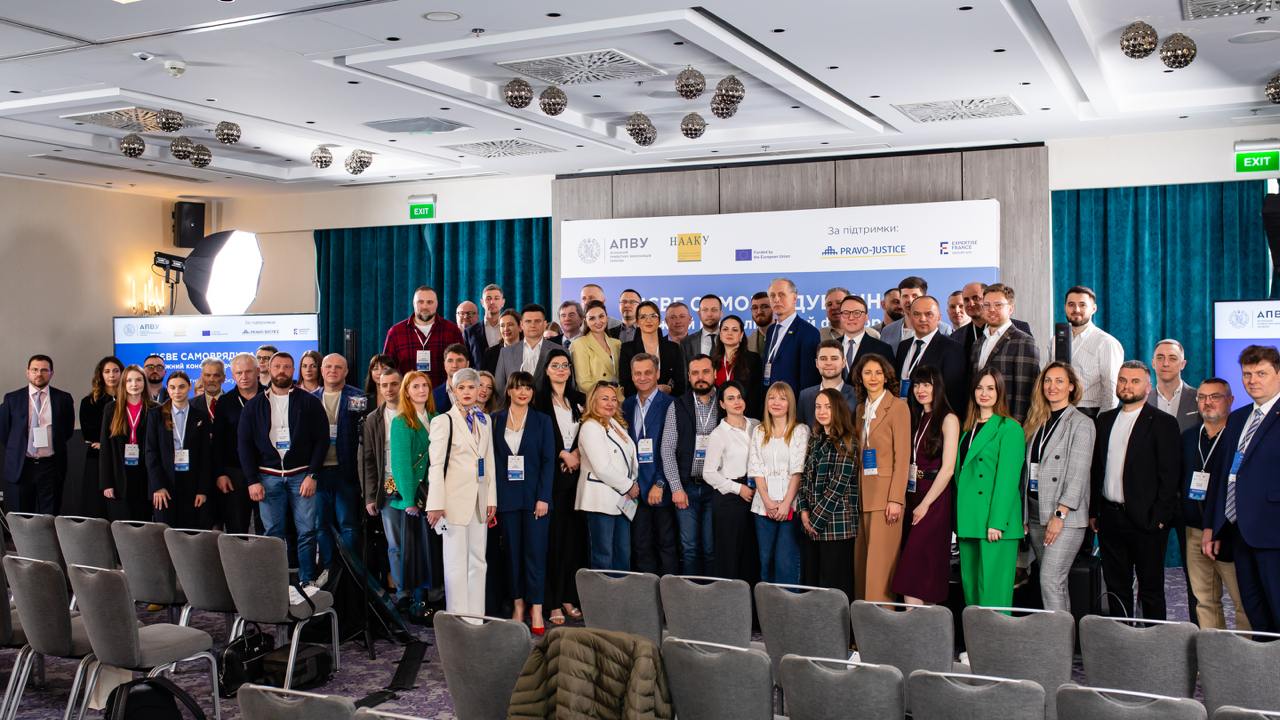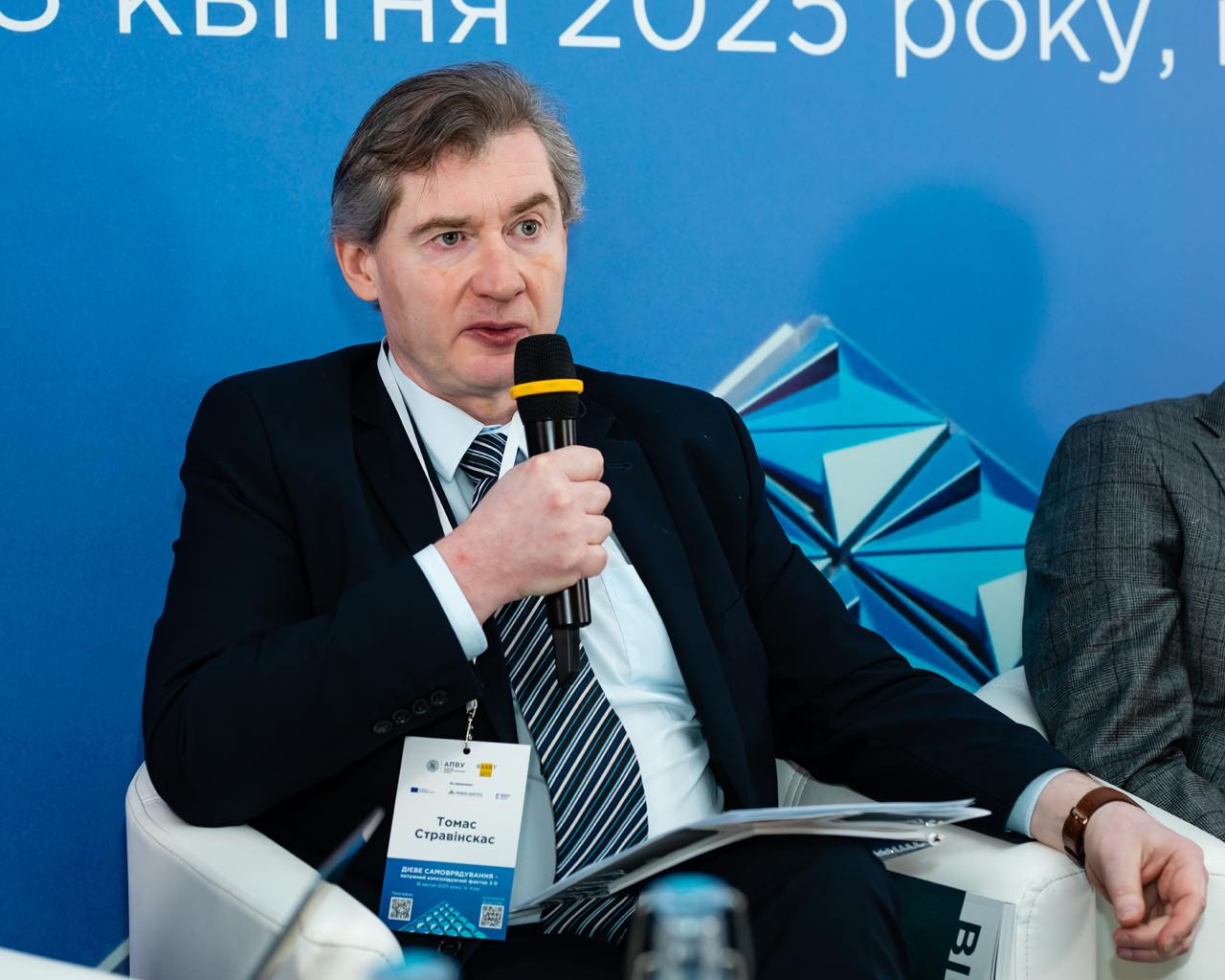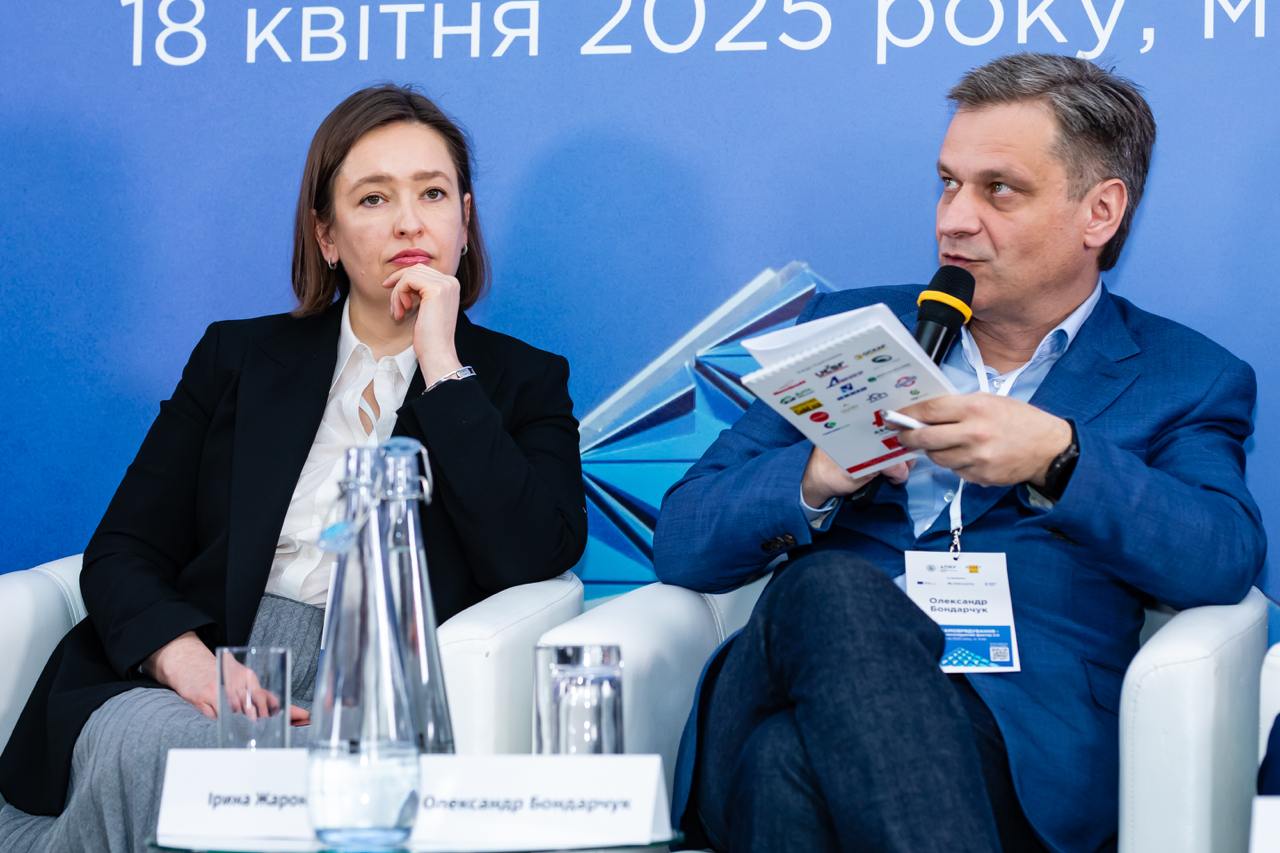EU Project Pravo-Justice Supported the International Conference “Effective Self-Government as a Powerful Consolidating Factor 2.0”

On April 18, the International Conference “Effective Self-Government as a Powerful Consolidating Factor 2.0” was held. That unique event was initiated by the Association of Private Enforcement Officers of Ukraine and the Ukrainian National Insolvency Trustees Association with the support of EU Project Pravo-Justice. The conference was attended by MPs, representatives of the Ministry of Justice of Ukraine, the Association of Private Enforcement Officers of Ukraine, the Ukrainian National Insolvency Trustees Association, the Notary Chamber of Ukraine, the Ukrainian Bar Association, as well as academia, national and international experts of EU Project Pravo-Justice, in particular from Lithuania and France.

“This is the first event of its kind that has brought together representatives of various legal professions regulated by the Ministry of Justice. This is a truly important platform for open dialogue – both within the professional communities and between the communities and the Ministry. I am sure that this format of communication will multiply on many more occasions,” said Oksana Tsymbrivska, Team Leader of EU Project Pravo-Justice.
According to her, the conference provided an opportunity to analyse what had been achieved, what aspects needed updating and what tools were needed to strengthen the transparency, accountability, and independence of professional organisations, which is especially relevant in the context of Ukraine’s European integration.
“Effective professional self-governance is of paramount importance for Ukraine’s progress on its path to membership in the European Union. Professional organisations act, in the first place, as a source of expertise for purposes of the Ukraine Facility implementation and harmonisation of national legislation with EU acquis. They ensure support for the rule of law, contribute to the preservation of professional integrity and competence, which is a guarantee of the high-quality of services. In addition, such organisations strengthen the efficiency of the judicial system, while proper self-regulation promotes high-quality performance of functions delegated by the State”, emphasised Oksana Tsymbrivska.

Tomas Stravinskas, Sector Manager at the EU Delegation to Ukraine, also pointed to the European integration aspect of the development of self-regulatory professional organisations. He also emphasised the importance of improving the disciplinary practice of the legal professions.
“Ukraine’s acquisition of EU candidate status was a significant step on the path to European integration. Effective self-governance of the professions has an outstanding role, in particular in the context of disciplinary liability. Rights always come along with responsibilities; and self-governance mechanisms should be adapted to the national context, time, and existing challenges. Such conferences are an excellent opportunity to exchange international best practices and identify best solutions,” said Thomas Stravinskas.
Marc Schmitz, President of the International and European Union of Judicial Officers, stated that strong professional associations, independent regulation and clear ethical standards had helped judicial officers in Europe not only maintain their autonomy, but also earn the trust of the society. According to him, such an approach allows them to work effectively, in line with the principles of fairness, transparency, and legal certainty.
“For Ukraine, the development of self-government, including among private enforcement officers, is not just another element of reform. It is an important step towards greater professionalisation, strengthening independence, and adaptation to European legal standards. This is the moment when these changes are especially demanded,” said Marc Schmitz.
Valerii Bozhyk, Deputy Chair of the Verkhovna Rada Committee on Legal Policy, noted that this conference was extremely relevant, since self-government was important not only for professional communities, but also for the society.
“The state of play in the self-government of professional communities is a maturity test for the society – and the legal system. It is not only a consolidating factor, but also a foundation for proper functioning of the professional community. It is through effective self-government that the professional community can realise its functions stipulated by law, and each member of the community can perform well,” said Valerii Bozhyk.
In turn, Oleksiy Movchan, Deputy Chair of the Verkhovna Rada of Ukraine Committee on Economic Development, emphasised that for the development of self-governance organisations, it was critically important to learn how to build trust, effectively interact with stakeholders, and professionally communicate with both society and relevant ministry.

Iryna Zharonkina, Enforcement and Protection of Property Rights Component Lead at EU Project Pravo-Justice, reported that the Project was at the origins of the creation of the Association of Private Enforcement Officers of Ukraine and the Ukrainian National Insolvency Trustees Association, and had been cooperating successfully with the Notary Chamber of Ukraine. In the present days, EU Project Pravo-Justice has been actively interacting with the community of judicial experts with the aim of creating background for the formation of sustainable professional self-governance for them as well, while taking into account the requests articulated by judicial experts and best international practices.
“Self-governance is a fundamental principle underlying the organisation and functioning of private legal professions, i.e. lawyers, notaries, enforcement officers, and insolvency practitioners, in the European Union. This principle ensures the independence of these professions, maintenance of professional standards, and contribution to strengthening the rule of law in the Member States. Typical functions of self-regulatory organisations of these professions include access to the profession, ensuring ethical standards, improving professional qualifications, disciplinary supervision, and protecting the interests of community members,” said Iryna Zharonkina.
In her speech, Oksana Rusetska, Head of the Association of Private Enforcement Officers of Ukraine, noted that citizens trusted much more the professionals who were united under the umbrella of a self-governance organisation. And there is a good reason for that.
“Professional institutions provide institutional control: they independently set standards, have clear mechanisms for supervision and response to violations. This creates not only an internal system of responsibility, but also a sense of being protected for the citizens,” said Oksana Rusetska.
Oleksandr Bondarchuk, Head of the Ukrainian National Insolvency Trustees Association, noted that self-government was an important component of a modern democratic State guided by the rule of law, which was not “handed down”, but initiated by the professionals themselves.
“It demonstrates the community being ready not only for self-regulation, but also for taking responsibility for the quality of its services and the ethics of its work. Professional self-government is, first of all, a tool for shaping responsibility within the professional community. Therefore, it must be constantly improved and developed,” said Oleksandr Bondarchuk.
Within the framework of that expert event, the participants were mainly focused on strengthening professional standards, striking a balance between the independence of self-governance organisations and state control, as well as exploring best international practices.
A separate session of the event was dedicated to ethics and disciplinary practice. The participants discussed the need to develop and effectively implement codes of ethics in professional associations, as well as reform disciplinary commissions to ensure their independence. It was emphasised that ethics underlied the trust in a professional activity.
The discussion also covered practical aspects of organising the work of secretariats and advisory bodies, improving the qualifications of specialists through training centres, and developing mediation as an alternative way to resolve professional disputes.